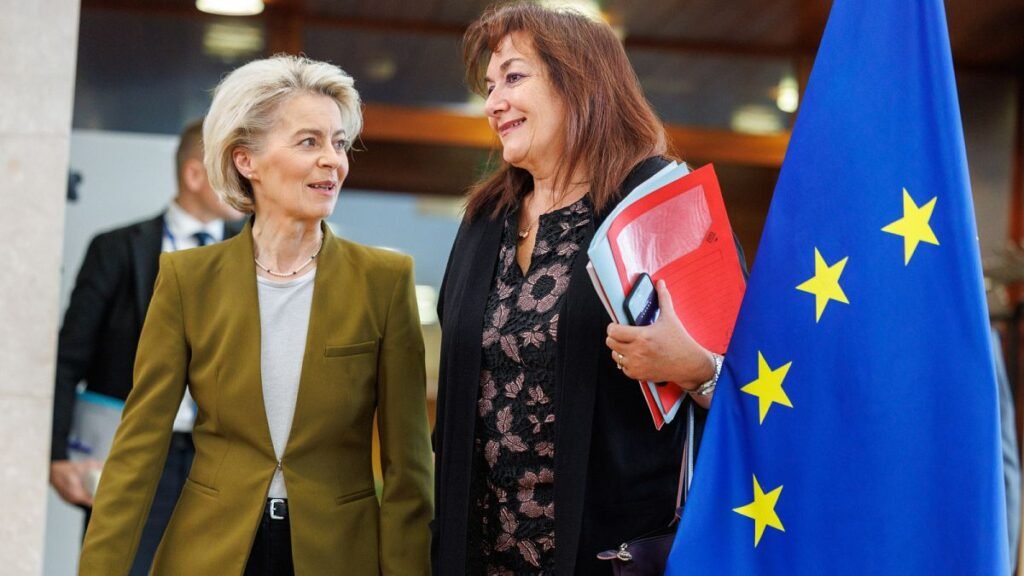The European Commission President Ursula von der Leyen has made changes to the EU’s policy toward neighboring countries in North Africa and the Middle East by splitting the responsibilities between two separate Commissioners. This move aims to allow the enlargement chief to focus on supporting candidate countries in the EU’s eastern neighborhood, while also revitalizing relationships in the Mediterranean region. Critics argue that this separation may perpetuate the EU’s double standards in its foreign policy, with different objectives for candidate countries and Mediterranean partners. The EU’s relationship with Turkey, a Mediterranean and EU candidate country, will straddle both portfolios.
Commissioner Dubravka Šuica has been tasked with operationalizing the external aspects of the EU’s migration policy, including striking comprehensive partnerships with partners in the Mediterranean region. These partnerships are similar to recent cash-for-migration-management deals with countries like Tunisia, Egypt, Mauritania, and Lebanon. The deals involve providing funding to these countries in exchange for commitments to crack down on migrant smuggling networks and reduce the number of migrants attempting dangerous journeys to reach the EU. While these agreements have led to a decrease in irregular arrivals, human rights defenders criticize the lack of conditions attached to the funding, turning a blind eye to documented abuses against migrant communities.
As part of her responsibilities, Commissioner Šuica will also draft a new EU Middle East Strategy post-war in Gaza, working with designated top diplomat Kaja Kallas. Concerns have been raised about von der Leyen tightening her grip on the EU’s Middle East policy following the departure of top diplomat Josep Borrell. Šuica’s role also includes overseeing EU funding to the Palestinian Authority, anchoring it in reforms to support a two-state solution and collaborating with the international community on a reconstruction plan for Gaza. Additionally, she will work on a strategic communication plan to promote the EU’s role in the southern neighborhood and counter any anti-EU narratives that may have arisen.
Critics point out that the EU’s values-based foreign policy appears to be drifting as there is a clear distinction in objectives for candidate countries versus Mediterranean partners. While the EU emphasizes democracy and human rights for candidate countries, cooperation with Mediterranean countries focuses on migration controls, energy cooperation, and strategic alignment with the EU’s goals. The move to separate the EU’s approach to neighboring countries in different regions has raised concerns about a consolidation of double standards within the EU’s foreign policy. With the bloc’s reputation in the southern neighborhood and the broader Global South at stake, there is a need to address rising anti-EU sentiment and counter narratives that depict the EU in a negative light.
The EU’s response to the geopolitical urgency of enlargement and the need to reestablish credibility as an actor in the Mediterranean region are central to von der Leyen’s decision to split the responsibilities between two Commissioners. The focus on supporting candidate countries in the eastern neighborhood and revitalizing relationships in the Mediterranean highlights the EU’s strategic priorities. However, the lack of alignment in values-based foreign policy and the perceived double standards in dealing with different regions raise questions about the coherence of the EU’s approach. Addressing these concerns, while promoting the EU’s role in the southern neighborhood, will be essential in shaping the bloc’s reputation and influence in the broader Global South.

